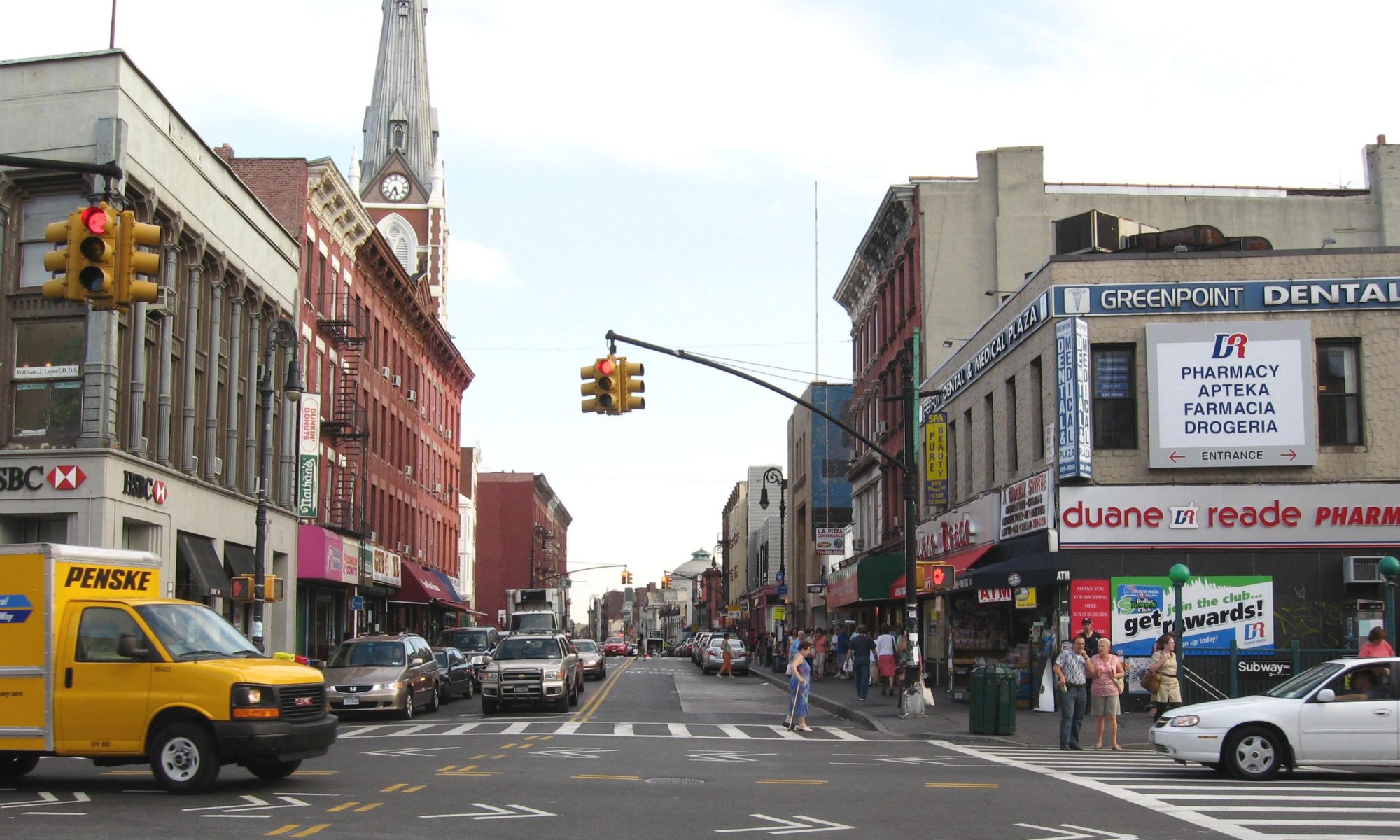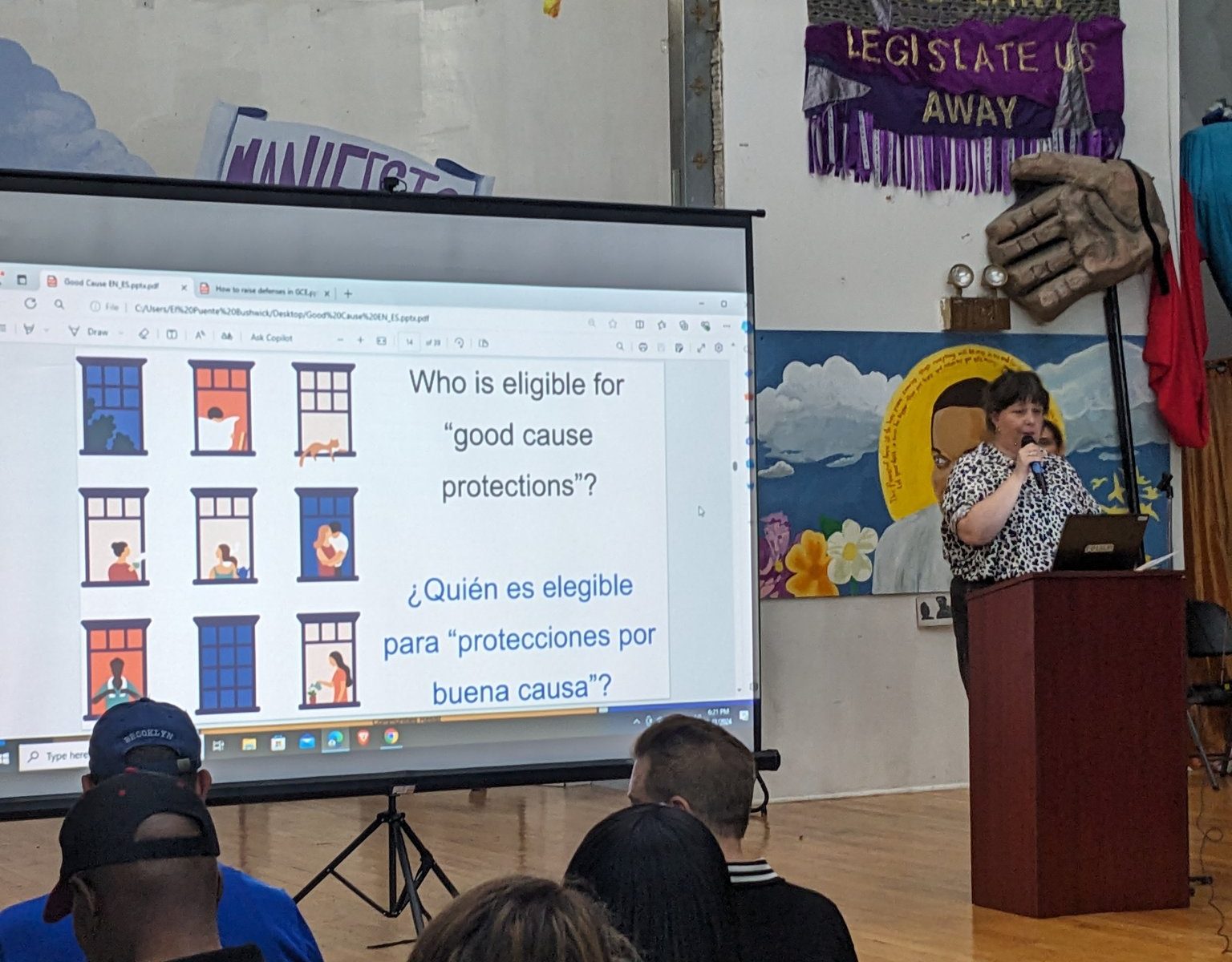By Jean Brannum | jbrannum@queensledger.com
Politicians and tenant’s rights groups met with residents of Greenpoint for a town hall about the new “Good Cause” Evictions law, which went into effect in April 2024.
Assemblymember Emily Gallagher and State Senator Julia Salazar, who introduced the Good Cause law, hosted the event. Dominique Hood from the Metropolitan Council on Housing and Lino Diaz from Communities Resist gave presentations on what residents need to know about the Good Cause laws. Councilmember Lincoln Restler was also in attendance. Housing experts joined attendants in the El Puente Community Center to answer additional questions.
The Good Cause laws protect tenants in market-rate homes from unreasonable rent hikes and unjust evictions. It also allows tenants to challenge rent increases in court.
Are You Eligible?
It’s important to note that only certain homes are eligible for Good Cause protections. Only market-rate homes are protected, meaning they are not classified as Section Eight, NYCHA, Rent Controlled or Rent Stabilized units. Homes must also be built before 2009 and rent must be less than 245% of the market rate per month. Co-op homes and condos are not eligible for Good Cause protections.
Landlords have to notify tenants if their homes are covered under Good Cause for leases, renewals, rent hikes and evictions starting after Aug. 18. Your landlord must state why or why not you are protected under Good Cause.
Lastly, a Good Cause only applies to landlords who own more than 10 units. You can find out how many apartments your landlord owns by searching on whoownswhat.justfix.org
Can my rent increase if it is under Good Cause protections?
Landlords can reasonably raise rent if the apartment is under Good Cause protections. However, the increase cannot be more than 5-10% of the Consumer Price Index (CPI). Landlords have to provide advanced notice to tenants. Notices must be 30 days in advance for residents who have stayed in a unit for less than a year, 60 days for one or two-year stays, and 90 days for residents staying two or more years in a unit.
To increase the rent beyond 10%, landlords have to prove that a rent hike is necessary for the upkeep of the property.
Can I get evicted from my apartment?
In New York City, a landlord has to evict a tenant through a court proceeding. In a Good Cause unit, landlords have to have a good reason to evict you. The reasons include rent nonpayment, violating a substantial obligation of your lease, being a nuisance, or failure to provide the landlord adequate access to your unit, according to the Legal Aid Society.
How can I exercise my rights as a tenant in a Good Cause unit?
There are two different types of cases where the defense could be based on the Good Cause law: nonpayment and holdover cases. In a nonpayment case, the landlord’s goal is for the tenant to pay the missing rent. The case is closed once that rent is paid, according to Diaz. In a holdover case, the goal for the landlord is to get the tenant out of the unit whether rent is paid or not. If a landlord takes a tenant to court then the tenant can provide a defense or “answer.”
If you believe your rent was raised unjustly, you can use Good Cause as a defense for nonpayment in a rent trial. One example of a defense is the Warranty of Habitability, which means the landlord knew of certain conditions in the unit and did not fix them. Therefore, rent should be reduced.
For a nonpayment case, answers must be filed within 10 business days of receiving the petition. The form is available at the court clerk’s office. After filing, a court date is set. In a holdover, you must serve an answer before your first court date. The housing court may provide a form, or you can find it online.
Most importantly, tenants do have the right to have an attorney to represent them. NYC tenants are entitled to an adjournment at their first court appearance to find counsel. Tenants can also use the Right to Counsel program at their courthouse, which is access to free representation through nonprofit organizations.
Who can I contact if I have questions?
Many organizations advocate for tenants and provide legal services for free, such as the Legal Aid Society, Communities Resist, the Metropolitan Council on Housing, and Brooklyn Legal Services. Communities Resist has an intake hotline at (646)974-8761.

